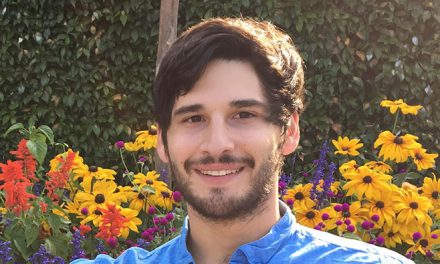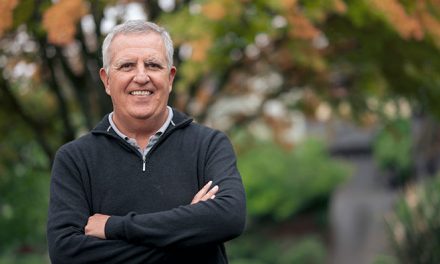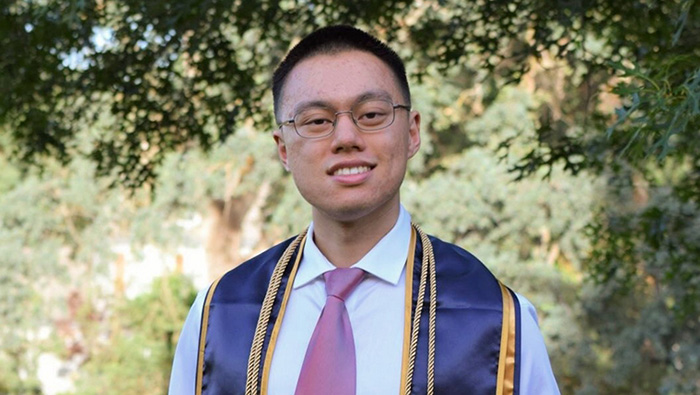High Court Legacy
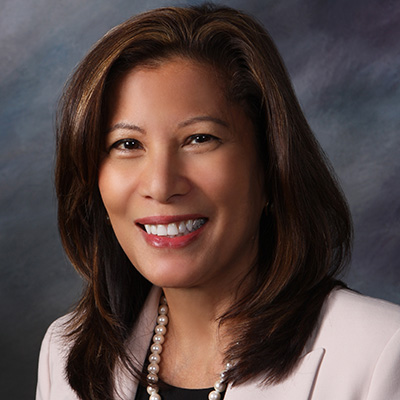
Tani G. Cantil-Sakauye (Courtesy photo)
Dean Kevin Johnson has high praise for 1984 law school graduate Tani G. Cantil-Sakauye and her leadership of the California Supreme Court, as she prepares to retire as chief justice at the end of the year.
And the dean is equally impressed with an alumna who is poised to continue the UC Davis tradition on the high court, Kelli Evans ’94, who has been named by Gov. Gavin Newsom as his latest selection for appointment as an associate justice. Dean Johnson called Evans “a brilliant choice,” adding: “Besides being an amazingly accomplished lawyer and judge, she has devoted her professional life — and her very heart and soul — to social justice for all.”
In a two-pronged announcement Aug. 10, Newsom said he would appoint Evans to replace Associate Justice Patricia Guerrero if and when she is confirmed as the next chief justice. That was the other part of the governor’s announcement: that he had nominated Guerrero to replace Cantil-Sakauye as chief justice when she steps down Jan. 3.
Cantil-Sakauye announced July 27 that she would not be a candidate in the November general election for a second 12-year term.
“With grace and dignity, she has played a historic role in leading the California Supreme Court,” Dean Johnson said. “Advocating for the state’s courts through many challenging budget years, she greatly improved the delivery of justice in the state and the morale of the state judiciary.”
The dean said Cantil-Sakauye has been a leader nationally as well. “The chief justice courageously let the Trump administration know in no uncertain terms that immigration arrests at the state courthouses interfered with the ordinary operation of the justice system,” he said.
Further, in a decision that attracted attention nationwide, Cantil-Sakauye wrote the unanimous opinion in 2014 holding that undocumented immigrants can be licensed to practice law.
“Last but not least, Chief Justice Cantil-Sakauye was dedicated to diversifying the legal profession, devoting time and efforts to law students, pipeline programs and more.”
Waiting in the wings
Evans has been serving as an Alameda County Superior Court judge since 2021, appointed by Newsom. Before that, as Newsom’s chief deputy legal affairs secretary, she helped shape the state’s moratorium on capital punishment and advised the governor and executive agencies on myriad issues in administrative proceedings and in state and federal trial and appellate courts, according to the governor’s announcement.
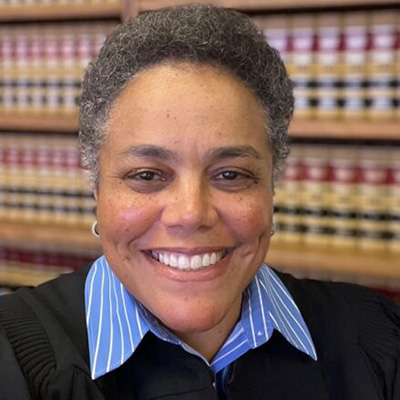
Kelli Evans (Courtesy photo)
The prospective associate justice received her undergraduate degree from Stanford before attending the UC Davis School of Law, where she won the Martin Luther King Jr. Service Award.
“I have worked my entire career to promote equality and access to justice and to protect the rights of some of society’s most disenfranchised members,” Evans said in the governor’s announcement. “If confirmed, I look forward to furthering our state’s work to ensure equal justice under the law for all Californians.”
High court appointments are subject to review by the State Bar’s Commission on Judicial Nominees Evaluation and confirmation by the state’s Commission on Judicial Appointments. Confirmed appointees are then subject to voter approval at the next general election.
Evans started her career as a public defender in Sacramento County and subsequently worked as an attorney and director for the American Civil Liberties Union of Northern California, senior trial attorney for the Civil Rights Division of the U.S. Department of Justice, and special assistant to state Atty. Gen. Xavier Becerra.
She was a partner at Independent Assessment & Monitoring LLP from 2006 to 2010 and an associate at Relman and Associates from 2001 to 2004. She has served as a member of federal court-appointed monitoring teams for the Oakland and Cleveland police departments.
The Aug. 10 announcement noted Evans’ work as Gov. Newsom’s lead attorney on a wide range of law enforcement, public safety, and criminal justice and civil rights-related law, policy and litigation issues.
Newsom noted Evans had been raised by her grandmother in public housing and “inspired from a young age to find ways to help expand justice and opportunity for everyone, especially marginalized and vulnerable communities.”
The chief justice
Gov. Arnold Schwarzenegger nominated Cantil-Sakauye to be chief justice in 2010 and voters subsequently confirmed her 12-year term. She served previously on the state’s 3rd District Court of Appeal, and the Sacramento Superior and Municipal courts.
Born in Sacramento, Cantil-Sakauye received a Bachelor of Arts degree in rhetoric at UC Davis before earning her law degree. She is a longtime supporter of her alma mater, was the keynote speaker at the law school’s 2011 and 2018 commencements and received the school’s Distinguished Alumna Award in 2016.
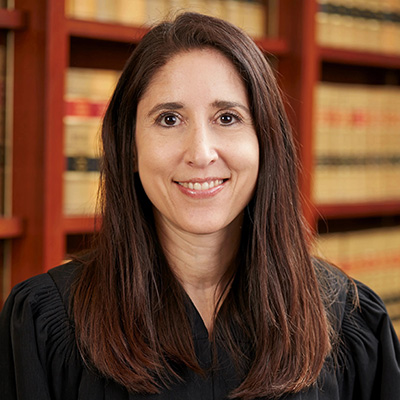
Patricia Guerrero (Courtesy photo)
Guerrero, the governor’s nominee to succeed Cantil-Sakauye, has been an associate justice since March. Upon taking the oath of office, she became the first Latina to serve on the state Supreme Court.
She previously served as a San Diego County Superior Court judge and an associate justice of the state’s 4th District Court of Appeal, where, according to the governor’s announcement, she authored numerous opinions to protect the rights of consumers and individuals, while also ensuring that defendants’ constitutional rights were protected and that all parties, including the government, were treated fairly and consistent with the rule of law.
Guerrero, who holds a law degree from Stanford, has worked in private practice and as an assistant U.S. attorney.
“If confirmed [as chief justice], I look forward to continuing the strides the court has made under Chief Justice Cantil-Sakauye to expand equal access to justice and create a fairer justice system for all Californians,” Guerrero said.
Read more
Supreme Justice — UC Davis Magazine profiled Cantil-Sakauye in 2010, after she had been named chief justice. She took office in January 2011.


